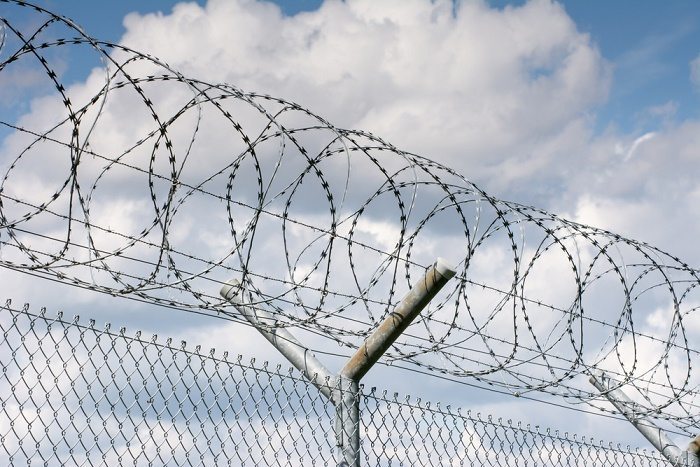Court Blocks Effort to License Family Detention Centers as Child-Care Facilities
Bob Libal of Grassroots Leadership said that the state didn't want to license detention centers as child-care facilities because there was an actual “emergency”; it sought to expedite the process and reduce the standards to meet the facilities' needs.

The Texas-based organization Grassroots Leadership on Friday won a temporary injunction in its suit to stop the Texas Department of Family and Protective Services (DFPS) from licensing family detention centers in Karnes and Dilley as child-care facilities under an emergency rule.
The emergency rule would eliminate minimum child safety standards applicable to all child-care facilities in Texas, according to advocates. The detention centers must now go through the traditional licensing procedure, which will enable both the public and advocacy organizations to offer feedback during that process.
Bob Libal, executive director of Grassroots Leadership, which works to end for-profit incarceration and reduce reliance on criminalization and detention, told Rewire that the state of Texas issued an emergency rule in September allowing the licensing of these detention centers very quickly and under lower standards than normal child-care facility standards.
“What happened on Friday is that [district Judge Karin Crump] ruled there was no emergency because the facility [Dilley] has been open for more than a year and the state government had known about family detention facilities since Hutto, which operated as a family detention facility between 2006 and 2009.”
Libal said the state didn’t want to license detention centers as child-care facilities because there was an actual “emergency” or for the welfare of children; it sought to expedite the process and reduce the standards to meet the facilities’ needs.
Otherwise, it would have had to make the federally contracted facilities comply with state standards related to child welfare.
In an October letter, more than 140 people and organizations urged Texas officials to deny child-care licenses to private prison companies, outlining how the push to license the detention centers was merely an attempt to assist the federal government in complying with the federal district court’s order in Flores v. Lynch, which confirmed that children arriving to the United States with their mothers should not be held in unlicensed secure detention centers.
Advocates say that licensing facilities by exempting them from the Texas minimum care standards does not meet the child welfare concerns raised by the federal court and the 1997 Flores settlement agreement.
“The licenses would serve two purposes that have nothing to do with child protection: 1) supporting the federal government’s litigation position in defense of the facilities, and 2) ensuring continued profit to The Geo Group, Inc. and the Corrections Corporation of America, the private prison companies that own and administer the Karnes and Dilley detention centers. Investing taxpayer dollars to license detention centers that are currently subject to ongoing lawsuits is reckless and is inconsistent with a conservative use of limited public resources,” the letter said.
“The Flores settlement basically said you cannot detain children in unlicensed detention centers; these places have to be licensed,” Libal said. “After that ruling, the state of Texas basically scrambled to try to provide a justification for these detention centers in order for them to meet the needs of the settlement requirement. So, the ‘emergency’ for the state was that there might be a court order to close them [detention centers].”
Both Karnes County Residential Center in Karnes City and the South Texas Family Residential Center in Dilley have documented histories of human rights abuses, including the abuse of children.
Advocates say that allowing detention centers to operate as child-care facilities would mean that conditions that would never be acceptable to the children of American citizens are being requested to become more lax for the children of undocumented parents, despite findings from the Women’s Refugee Commission and the Lutheran Immigration and Refugee Service that found family detention cannot be carried out humanely. The report, Locking Up Family Values, Again: The Continued Failure of Immigration Family Detention, stated that conditions at detention centers are entirely inappropriate for mothers and children and that detention traumatizes families, undermines the basic family structure, and has a devastating psycho-social impact.
The letter sent to Texas officials outlined how licensing detention centers as child-care facilities and reducing their standards would adversely affect the children detained there. The size of these detention centers—2,400 capacity at Dilley and 1,100 planned for Karnes —contradicts evidence-based child welfare practices of avoiding large, congregate care facilities for children, according to the letter.
The organizations report that research has shown that children do better with their families in their communities. The conditions in the facilities run afoul of some of the most basic DFPS requirements for licensees that are not exempted by the emergency rule, including standards requiring access to basic medical care.
Both Karnes and Dilley have numerous documented failures to provide appropriate medical treatment to the mothers and children detained there.
“Licensing under reduced standards will not ensure child protection but condone neglect and abuse,” the letter continued. The exemptions seriously compromise children’s safety by permitting unrelated families in single rooms, requiring unrelated children of different genders and ages to sleep in the same enclosed space with unrelated adults. At least two instances of sexual abuse of children have already occurred at the detention centers and according to the letter, it was likely a result of the housing arrangements.
“Reducing the standards does nothing but codify the existing detention system,” Libal said. “This is really like putting the State of Texas’ seal of approval on a system that is harmful to children.”
